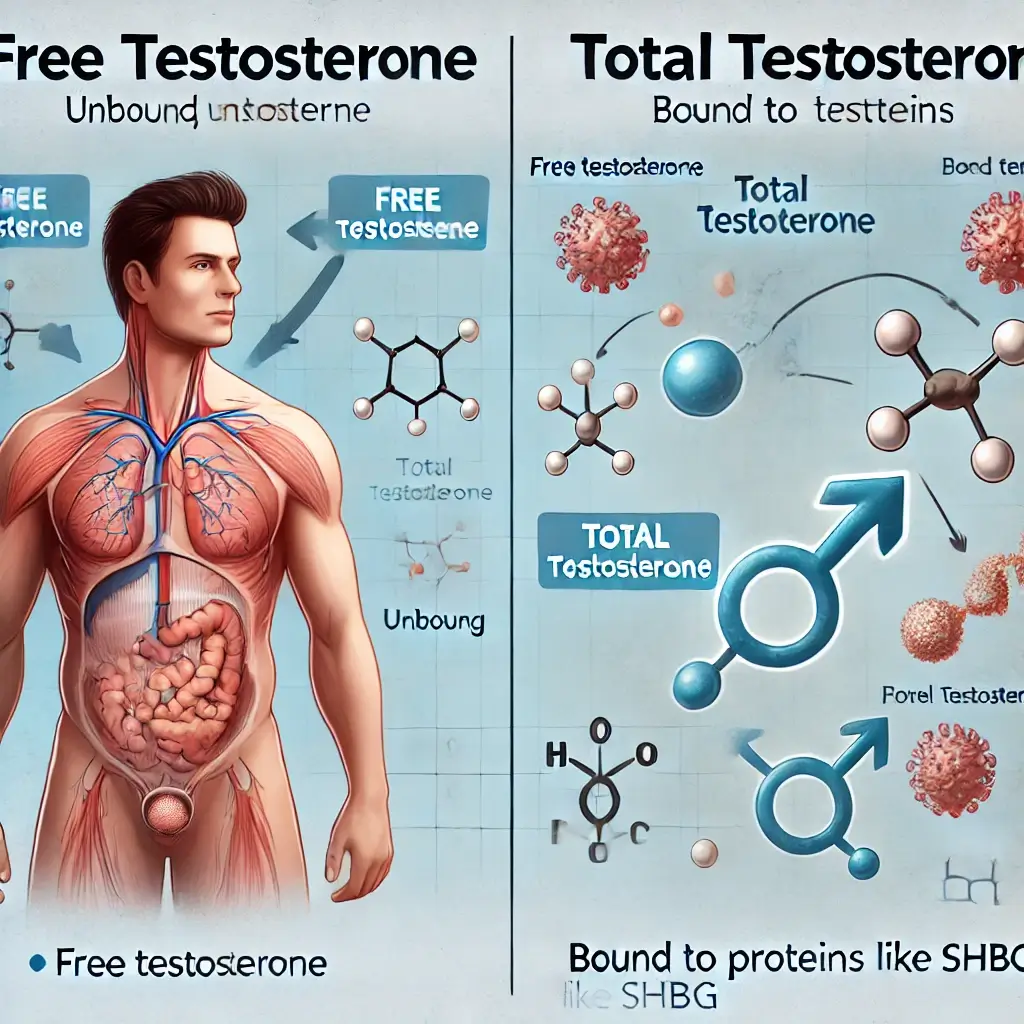Understanding Free and Total Testosterone
Although they represent different aspects, both free and total testosterone are crucial in understanding a man’s hormonal health.
Free Testosterone Explained
Free testosterone is the active form that your tissues may use to exert its effects throughout the body. It regulates various functions, including sex drive, muscular mass, bone density, and red blood cell synthesis.
Total Testosterone Defined
Total testosterone refers to all testosterone in your bloodstream, including free testosterone and testosterone linked to proteins such as albumin and sex hormone-binding globulin (SHBG).
The Key Difference: Availability
Free testosterone is the biologically active form that the body’s cells and tissues can readily utilize. It’s not attached to proteins like sex hormone-binding globulin (SHBG), which would limit its availability and usage. In contrast, a considerable fraction of the total testosterone is bound to proteins, making it less bioavailable.
The Balance of Free and Bound Testosterone
The balance of free and protein-bound testosterone is critical in defining the overall hormonal condition and biological consequences of testosterone in the body. Adjusting the free testosterone to protein-bound testosterone ratio can impact an individual’s health and well-being.
Why Both Free and Total Testosterone Matter
When assessing a man’s testosterone level, doctors often consider both numbers. A high total testosterone level may appear beneficial, but if most of it is bound to SHBG, the free testosterone accessible for usage may be insufficient.
An Analogy for Understanding
Think of testosterone as a room full of seats. Free testosterone is like an empty chair, ready for people to sit on. Bound testosterone resembles occupied seats. A free testosterone test assesses the “empty chairs” (active testosterone), while a total testosterone test assesses all of the room’s chairs, whether empty or occupied.
Additional Considerations
Normal ranges for free and total testosterone levels can differ based on age and the laboratory doing the test. A man may suffer symptoms of low testosterone even if his levels are within normal range. A doctor will take this into account, as well as the findings of any tests.
When to Seek Medical Advice
Consult your doctor if you are experiencing symptoms such as reduced libido, erectile dysfunction, exhaustion, or mood problems. They can evaluate your case, run blood tests to determine your free and total testosterone levels, and discuss appropriate treatment options if necessary.
